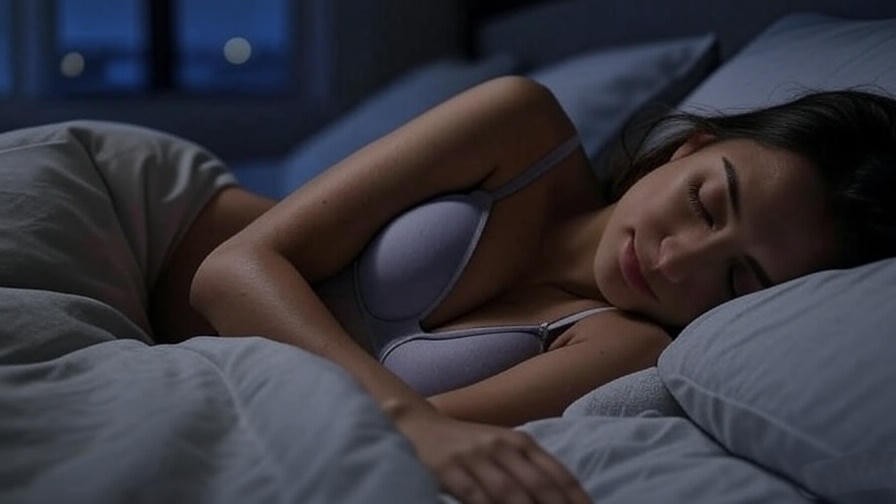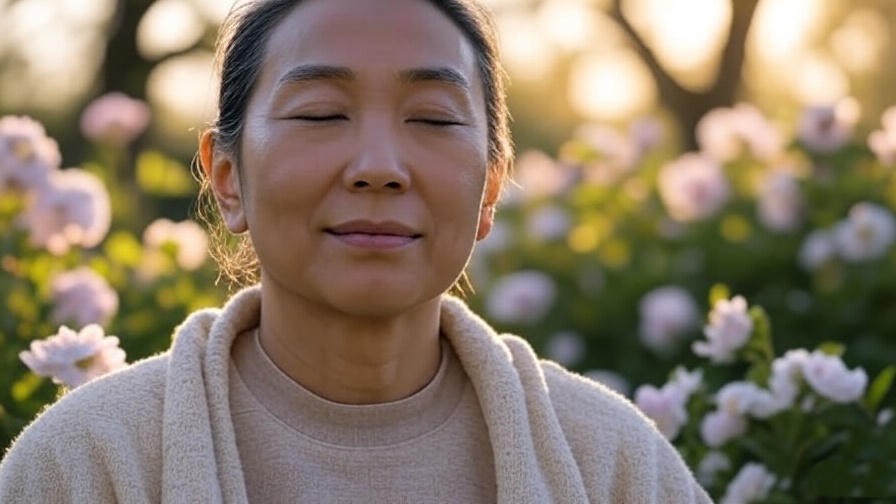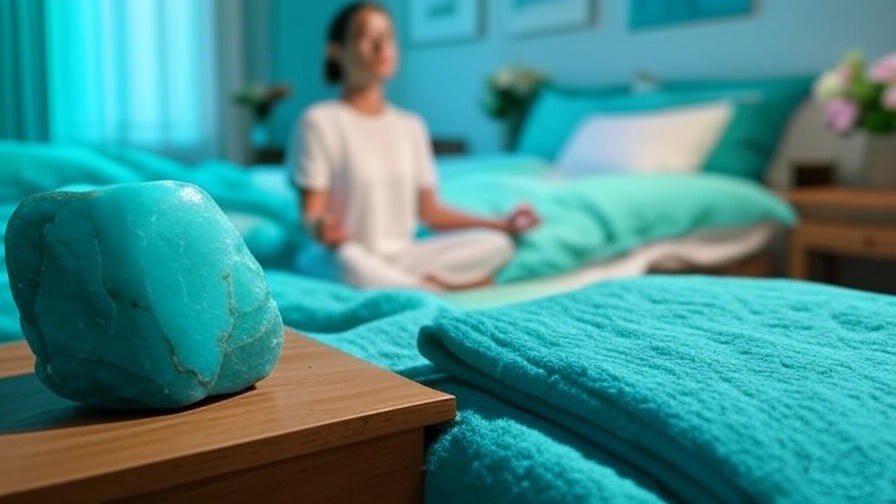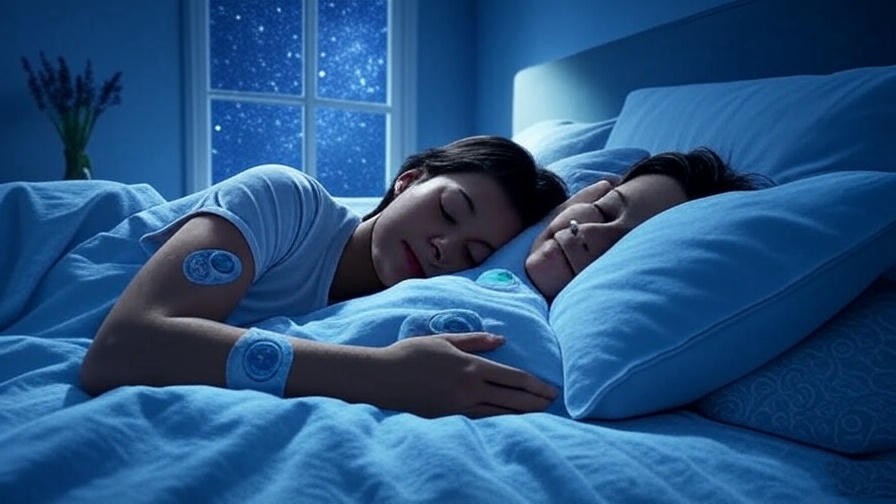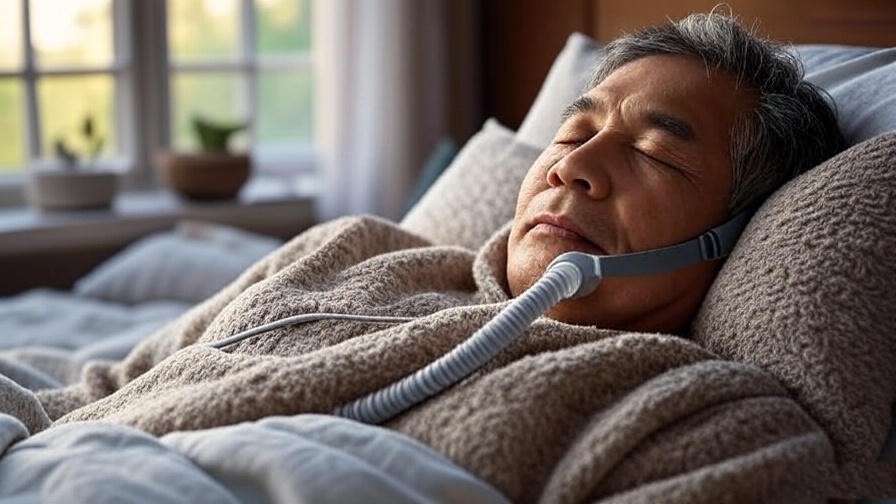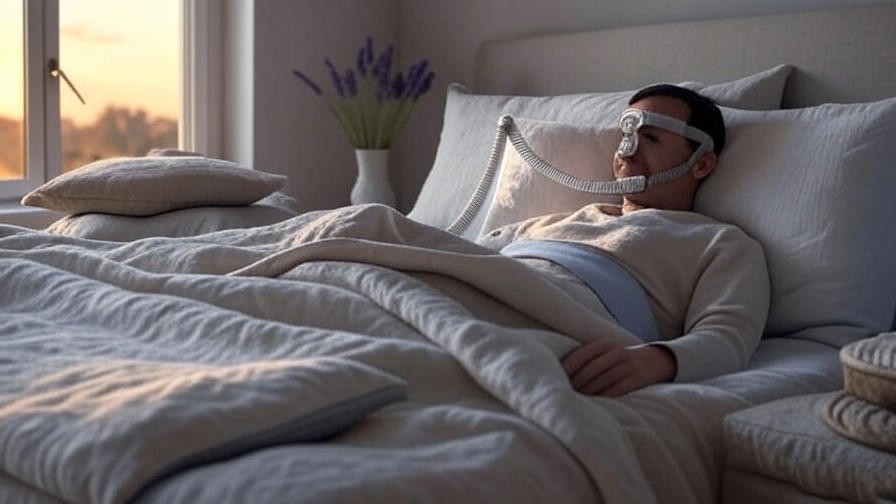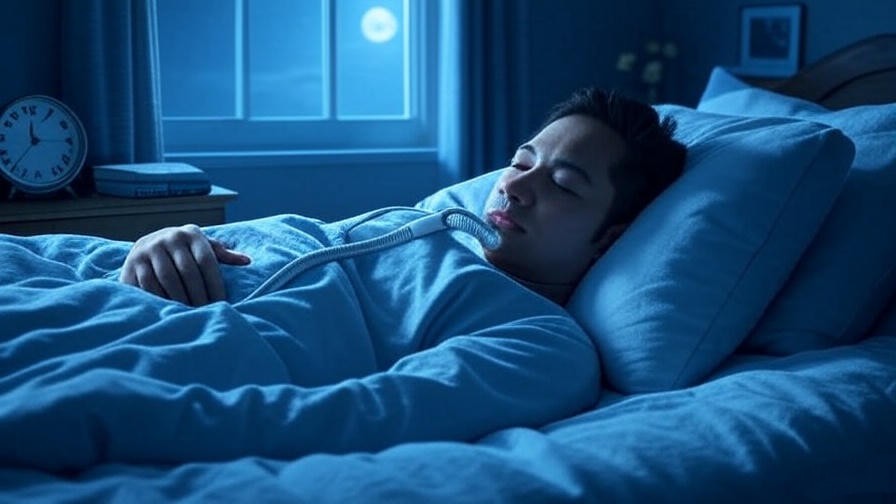Picture this: you crawl into bed exhausted, expecting a blissful night of rest, only to wake up feeling as if you barely slept. You spent hours in bed, yet your mind feels foggy, your energy is drained, and your mood is off. This frustrating phenomenon is called sleep creep—the gradual erosion of sleep quality that sneaks into your nights, leaving you unrested. If sleep creep sounds familiar, you’re not alone. Millions struggle with disrupted sleep, impacting their happiness, productivity, and holistic well-being. The good news? You can stop sleep creep with practical, evidence-based strategies. In this article, we’ll uncover seven proven techniques to help you reclaim restful, rejuvenating sleep, transforming your nights and days for the better.
What Is Sleep Creep and Why Does It Happen?
Defining Sleep Creep
Sleep creep is the subtle, often unnoticed decline in sleep quality that prevents you from feeling refreshed, even after a full night in bed. It’s not just about struggling to fall asleep; it might mean waking up multiple times, tossing and turning, or waking up feeling unrefreshed despite adequate hours. For example, you might lie awake replaying the day’s stresses or wake up at 3 a.m. for no apparent reason. Unlike acute insomnia, sleep creep builds gradually, making it harder to pinpoint until it significantly affects your life.
Common Causes of Sleep Creep
Several factors contribute to sleep creep, often working together to disrupt your rest:
- Stress and Anxiety: A racing mind, fueled by work pressures or personal worries, can keep you from relaxing into deep sleep.
- Poor Sleep Hygiene: Irregular bedtimes, excessive screen time, or an uncomfortable bedroom environment can sabotage rest.
- Environmental Disruptions: Noise, light, or an overly warm room can interrupt sleep cycles.
- Lifestyle Choices: Consuming caffeine or alcohol too late, eating heavy meals, or skipping relaxation routines can interfere with sleep quality.
- Underlying Health Issues: Conditions like sleep apnea or restless leg syndrome may silently contribute to sleep creep.
Understanding these triggers is the first step to addressing them effectively.
The Science Behind Sleep Creep
Sleep is governed by your circadian rhythm, a 24-hour internal clock that regulates when you feel sleepy or alert. It orchestrates sleep cycles, including rapid eye movement (REM) and non-REM stages, which are critical for memory, emotional balance, and physical restoration. Sleep creep disrupts these cycles, reducing time spent in deep sleep or REM, leaving you fatigued. According to a 2019 study published in Sleep Medicine Reviews, poor sleep quality is linked to impaired cognitive function, mood instability, and weakened immune response. The National Sleep Foundation notes that even minor disruptions can accumulate, creating a cycle of worsening sleep and health.
The Consequences of Ignoring Sleep Creep
Short-Term Effects
Ignoring sleep creep can quickly take a toll. You might notice:
- Fatigue and Low Energy: Feeling sluggish despite a full night in bed.
- Irritability and Mood Swings: Snapping at loved ones or struggling to stay calm.
- Difficulty Focusing: Trouble concentrating at work or forgetting small details.
These effects can strain relationships, reduce productivity, and dim your sense of happiness.
Long-Term Risks
Over time, sleep creep’s impact grows more serious. Research from the Centers for Disease Control and Prevention (CDC) links chronic poor sleep to:
- Increased risk of heart disease, diabetes, and obesity.
- Higher likelihood of anxiety and depression.
- Weakened immune function, making you more susceptible to illness.
A 2021 study in The Lancet found that consistent sleep disruption accelerates cognitive decline, even in younger adults. Left unaddressed, sleep creep undermines your holistic well-being, affecting both body and mind.
Why Acting Now Is Critical
Sleep creep compounds over time, turning occasional restless nights into a persistent problem. Consider Sarah, a 34-year-old teacher who noticed her energy dipping despite sleeping eight hours. She attributed it to stress but later realized late-night scrolling and an inconsistent bedtime were culprits. By addressing sleep creep early, you prevent a downward spiral and protect your long-term health.
7 Proven Strategies to Stop Sleep Creep
Strategy 1 – Optimize Your Sleep Environment
A bedroom designed for rest is crucial to combating sleep creep. The National Sleep Foundation recommends keeping your room cool (60-67°F), dark, and quiet to promote melatonin production, the hormone that signals sleep. Invest in blackout curtains, comfortable bedding, and a supportive mattress. If noise is an issue, try a white noise machine or earplugs.

Expert Tip: A 2018 study in Journal of Sleep Research found that exposure to even dim light at night can suppress melatonin by up to 50%. Use red or amber nightlights if you need illumination.
Strategy 2 – Establish a Consistent Sleep Schedule
Your body thrives on routine. Going to bed and waking up at the same time daily—even on weekends—reinforces your circadian rhythm. For example, a busy professional might aim for 10:30 p.m. to 6:30 a.m. to ensure 8 hours of rest. Consistency helps your brain anticipate sleep, making it easier to fall and stay asleep.
Actionable Tip: Use a sleep tracking app like Sleep Cycle to monitor your schedule and identify patterns that might contribute to sleep creep.
Strategy 3 – Limit Screen Time Before Bed
The blue light emitted by phones, tablets, and laptops suppresses melatonin, delaying sleep onset. A 2020 study by the American Academy of Sleep Medicine found that two hours of evening screen time can reduce melatonin levels by 22%. Create a 1-2 hour screen-free buffer before bed, replacing devices with calming activities like reading a book or journaling.
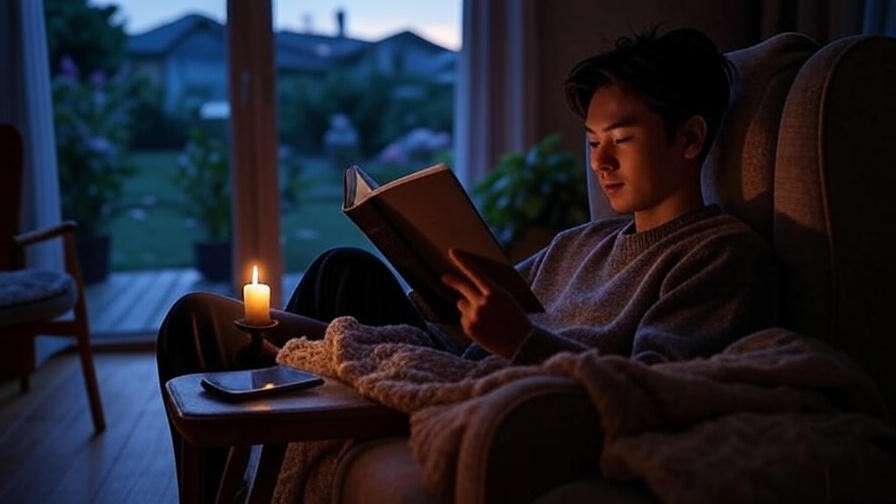
Practical Example: Try this pre-bed routine: dim the lights, sip herbal tea, and read a paperback for 20 minutes to signal your brain it’s time to wind down.
Strategy 4 – Practice Mindfulness and Relaxation Techniques
Stress is a major driver of sleep creep, keeping your mind active when it should be resting. Mindfulness practices like meditation or deep breathing can calm your nervous system. A 2015 study from Harvard Medical School showed that mindfulness-based interventions improved sleep quality in 49% of participants with chronic sleep issues.
Step-by-Step Bedtime Meditation:
- Sit comfortably or lie down in bed.
- Close your eyes and take 10 slow, deep breaths, focusing on the air moving in and out.
- Visualize a peaceful scene, like a calm beach or forest.
- If thoughts arise, gently acknowledge them and return to your breath.
- Continue for 5-10 minutes until you feel relaxed.
Expert Insight: Dr. Michael Breus, a clinical psychologist and sleep specialist, notes, “Mindfulness before bed helps shift your brain from ‘fight or flight’ to ‘rest and digest,’ countering sleep creep.”
Strategy 5 – Rethink Evening Habits
What you consume and do in the evening directly impacts sleep quality. Avoid caffeine and alcohol 4-6 hours before bed, as they disrupt sleep architecture. Heavy meals can cause indigestion, keeping you awake. Instead, opt for sleep-friendly snacks like bananas (rich in magnesium) or almonds (high in melatonin-promoting nutrients). Herbal teas like chamomile or valerian root can also promote relaxation.

Actionable Tip: Create an evening checklist:
- No caffeine after 2 p.m.
- Light dinner by 7 p.m.
- Sip chamomile tea at 9 p.m.
- Avoid intense exercise 3 hours before bed.
Strategy 6 – Address Stress and Anxiety
Stress and anxiety are among the leading causes of sleep creep, as they elevate cortisol levels, keeping your brain in a hyper-alert state. When you lie in bed worrying about tomorrow’s to-do list, your body struggles to transition into restful sleep. To counter this, try journaling before bed to offload racing thoughts. Writing down three things you’re grateful for can also shift your mindset toward positivity, reducing anxiety.
For chronic stress, consider professional support like cognitive behavioral therapy (CBT), which has been shown to improve sleep quality. A 2022 study in Sleep journal found that CBT for insomnia (CBT-I) reduced sleep disturbances in 60% of participants with anxiety-related sleep issues.
Case Study: Meet John, a 42-year-old marketing manager who struggled with sleep creep due to work stress. By dedicating 10 minutes each night to journaling and practicing deep breathing, he reduced his nighttime wake-ups from three to zero within a month, reporting higher energy and better mood.
Strategy 7 – Consult a Professional for Underlying Issues
Sometimes, sleep creep stems from underlying health conditions like sleep apnea, restless leg syndrome, or chronic insomnia. If you’ve tried lifestyle changes without success, it may be time to consult a sleep specialist. A sleep study (polysomnography) can diagnose issues by monitoring your brain waves, heart rate, and breathing during sleep. The American Academy of Sleep Medicine recommends seeking help if you experience persistent daytime fatigue, loud snoring, or frequent waking.

Trustworthy Resource: Visit the American Sleep Association’s website for a directory of certified sleep specialists or to learn more about sleep studies.
How to Implement These Strategies for Lasting Change
Creating a Personalized Sleep Plan
To effectively combat sleep creep, tailor these strategies to your lifestyle. Start by assessing your sleep habits with a simple self-audit:
- Sleep Environment: Is your bedroom dark, quiet, and cool?
- Routine: Do you have a consistent bedtime and wake-up schedule?
- Evening Habits: Are you avoiding screens, caffeine, and heavy meals before bed?
- Stress Levels: Are stress or anxiety interfering with your ability to relax?
Choose 1-2 strategies that address your biggest challenges. For example, if screens are a problem, focus on Strategy 3 (limiting screen time) and Strategy 4 (mindfulness). Gradually incorporate additional strategies as you build new habits.
Tracking Progress
Monitoring your progress helps you stay motivated and identify what works. Keep a sleep diary to record:
- Time you go to bed and wake up.
- How long it takes to fall asleep.
- Number of nighttime wake-ups.
- How refreshed you feel in the morning (on a scale of 1-10).
Alternatively, use wearable devices like Fitbit or apps like SleepScore to track sleep patterns. Aim for improvements like falling asleep faster (under 20 minutes) or fewer wake-ups over 2-3 weeks.
Staying Motivated
Changing sleep habits takes time, but the rewards—better energy, mood, and overall well-being—are worth it. Involve a partner or friend to hold you accountable, such as checking in on your screen-free routine. Celebrate small wins, like feeling more rested after a week of consistent bedtimes. As one reader shared, “After prioritizing my sleep environment and cutting out late-night coffee, I feel like a new person—happier and more focused.”
Common Myths About Sleep Creep
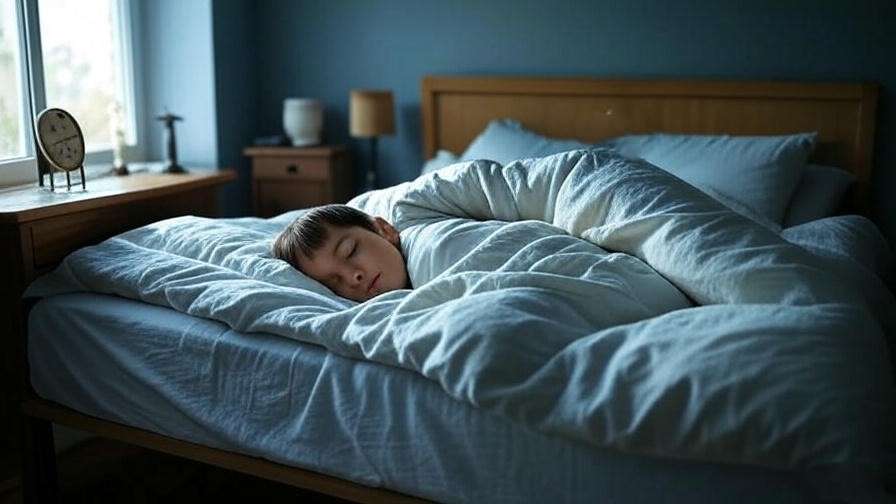
Misconceptions about sleep can keep you stuck in unhealthy patterns. Let’s debunk a few:
- Myth: “I can catch up on sleep on weekends.”
Reality: A 2017 study from Stanford University shows that “catch-up sleep” doesn’t fully reverse the effects of sleep debt, especially if sleep creep is chronic. Consistency is key. - Myth: “A nightcap helps me sleep.”
Reality: Alcohol may help you fall asleep faster but disrupts REM sleep, reducing overall sleep quality, per a 2020 study in Sleep Medicine. - Myth: “I don’t need 8 hours of sleep.”
Reality: While sleep needs vary, the National Sleep Foundation states that most adults require 7-9 hours for optimal health and performance.
Clearing up these myths empowers you to make informed choices for better sleep.
FAQs About Sleep Creep
Q1: What’s the difference between sleep creep and insomnia?
A: Sleep creep is a gradual decline in sleep quality due to habits, stress, or environment, often unnoticed until it becomes significant. Insomnia is a clinical disorder involving persistent difficulty falling or staying asleep. Sleep creep can sometimes lead to insomnia if unaddressed.
Q2: Can sleep creep be fixed without medication?
A: Yes, most cases of sleep creep can be resolved with lifestyle changes like those outlined in this article. Strategies like optimizing your sleep environment and practicing mindfulness are highly effective. However, consult a doctor if symptoms persist.
Q3: How long does it take to see improvements after addressing sleep creep?
A: Improvements can start within 1-2 weeks of consistent changes, such as a fixed sleep schedule or reduced screen time. Full benefits, like feeling consistently refreshed, may take 4-6 weeks.
Q4: Are there specific meditation apps for sleep creep?
A: Apps like Calm, Headspace, and Insight Timer offer guided meditations designed for sleep. Look for sessions focused on relaxation or bedtime mindfulness to counter sleep creep.
Conclusion
Sleep creep may be stealing your rest, but it doesn’t have to control your nights. By optimizing your sleep environment, sticking to a consistent schedule, limiting screens, practicing mindfulness, rethinking evening habits, managing stress, and seeking professional help when needed, you can reclaim restful, rejuvenating sleep. These seven strategies, grounded in science and expert insights, empower you to break the cycle of sleep creep and enhance your holistic well-being. Start tonight with one small change—perhaps dimming the lights or trying a 5-minute meditation—and watch how better sleep transforms your energy, mood, and happiness. Share your progress in the comments or on social media, and let’s inspire each other to sleep better, live better.


